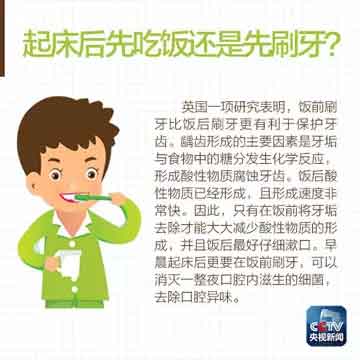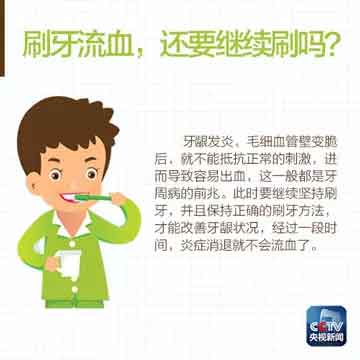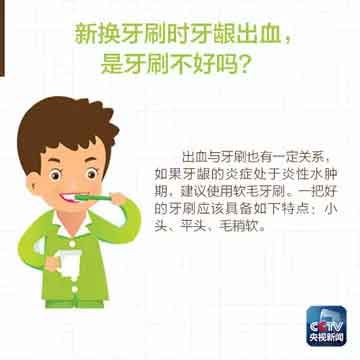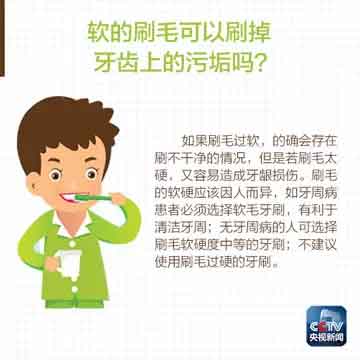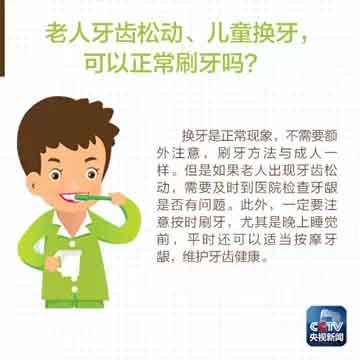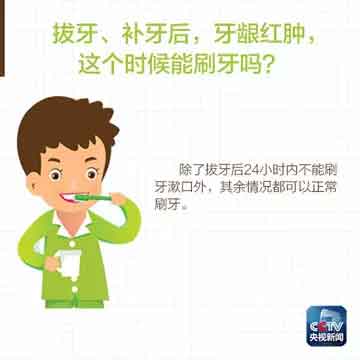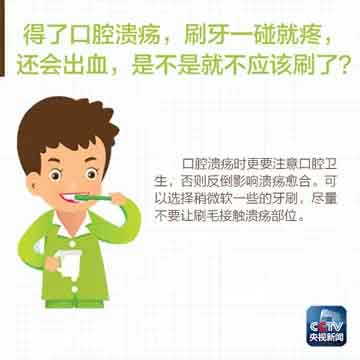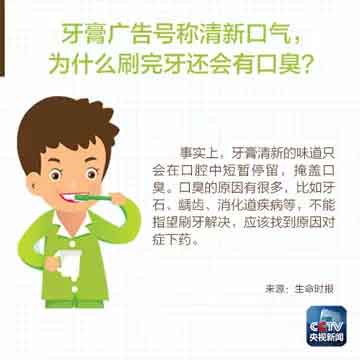How often should 85% of Chinese adults suffer from periodontal disease wash their teeth?
CCTV News:Today is "national love teeth day". According to the results of the third national oral epidemiological survey, more than 85% of adults in China suffer from periodontal diseases, which are closely related to the health of other organs in the whole body.
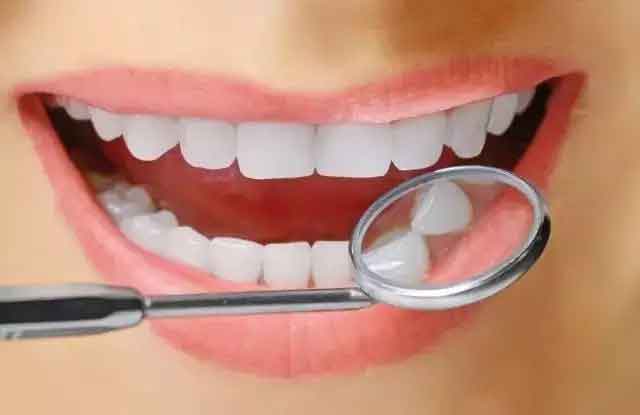
Periodontal diseases are related to organ health.
Periodontal diseases mainly include gingivitis and periodontitis. It is a common oral disease that gingiva and tissues around teeth are inflamed and destroyed under the action of dental plaque, which leads to tooth loosening and falling off.
The oral cavity is the entrance of respiratory tract and digestive tract. Periodontal diseases not only harm the oral cavity, but also are closely related to the whole health. When periodontal diseases occur, a large number of bacteria gather on the tooth surface and periodontal area, forming erosive ulcer surface. When a large number of bacteria accumulate on the ulcerated surface, daily chewing activities can make bacteria and toxic products enter the blood circulation, increasing the risk of systemic diseases.

Luan Qingxian, director of the Department of Periodontology at Peking University Stomatological Hospital, pointed out that periodontal diseases are linked to the heart, the brain, the lungs, the stomach and the next generation. For example, research now believes that if there are inflammatory factors in the blood, it will increase the prevalence of diabetes. Other studies have shown that the prevalence of cardiovascular and cerebrovascular diseases in patients with periodontal diseases will also increase.
Prevention of periodontal diseases and avoidance of obsolescence
The tooth loss rate of the elderly aged 65 to 74 in China is as high as 86%, while 10% of the elderly have no teeth at all. Experts remind that missing teeth will add a lot of burden to the digestive system and cannot be underestimated.
Tooth loosening is a slow process of physiological change, and the most effective way to avoid tooth loss is to prevent periodontal disease. Symptoms of periodontal disease include gingival bleeding, gingival swelling, pain, etc., which can cause teeth to loosen or even fall off in severe cases. Plaque and tartar are the chief culprit of periodontal disease, and adults should wash their teeth once a year.
Some people say that it is a natural law for people to lose their teeth when they are old, and there is no need to repair them. The doctor reminded that if the teeth are missing, the balance of the whole mouth will be disturbed. If not repaired in time, the rest of the teeth will be tilted, displaced and periodontal damage will be caused.
Children and pregnant women should pay special attention to oral health.
Special attention should be paid to the oral health of children and pregnant women. Children’s oral examination should start within 6 months after the first deciduous tooth erupts, once every six months. The oral health of pregnant women is not only related to their own health, but also affects the health of the fetus, which may lead to premature delivery and low birth weight infants. Moreover, during pregnancy, due to factors such as hormonal changes in the body and decreased immunity, pregnant women are particularly prone to cause dental and gingival lesions.
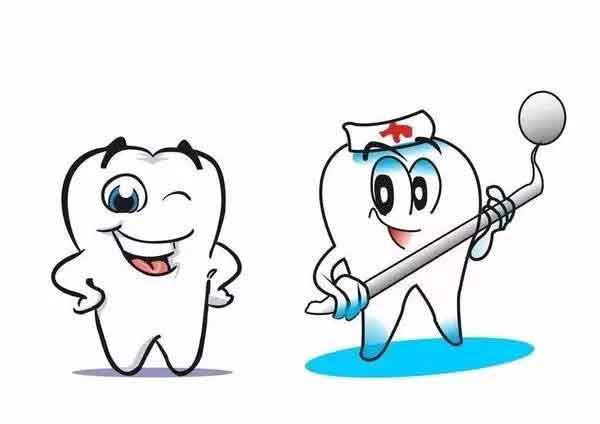
Small floss is a good helper for tooth cleaning.
A large number of studies have confirmed that although periodontal disease is the most prevalent oral disease, it can be prevented and cured. In addition to brushing our teeth on weekdays, there is also a small tool that can help us clean the plaque between our teeth, and that is dental floss.
The doctor said that brushing teeth with a toothbrush can only clean 70% of teeth, and the other 30% is the gap between teeth. Many oral diseases are caused by the uncleanness of the gap between teeth. Flossing can effectively remove residual food, soft tartar and clean dental plaque.
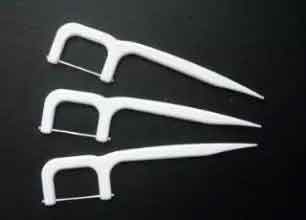
How to use dental floss stick correctly?
For patients who floss for the first time, a dental floss stick is a good choice. When you use the dental floss stick, the dental floss is directed at the gap between teeth, and gently slides the gap between teeth by horizontal pulling and oblique pulling, so that the dental floss is "C"-shaped, and then it is pulled up and down for four to six times, and then the other side, which is also the "C"-shaped, is cleaned, and then it is pulled up and down for four to six times, and finally the dental floss is slowly pulled out from the gap.
Experts emphasize that dental floss cannot be reused. Some friends reuse the same dental floss for convenience, which is very undesirable. Because dental floss will carry a lot of germs after cleaning teeth, and these germs can’t be washed clean with water. Frequent use may bring more bacteria to teeth, so be sure to pay attention!
There is no harm in using dental floss. As long as you master the correct use method, don’t use too much force to avoid damaging your gums, you can floss once or twice a day.

Can you really brush your teeth?
Do you want to brush your teeth if it bleeds? Can soft bristles brush away dirt from teeth? Xiaobian combed the eight misunderstandings about brushing your teeth and poked pictures to learn how to brush your teeth correctly!
